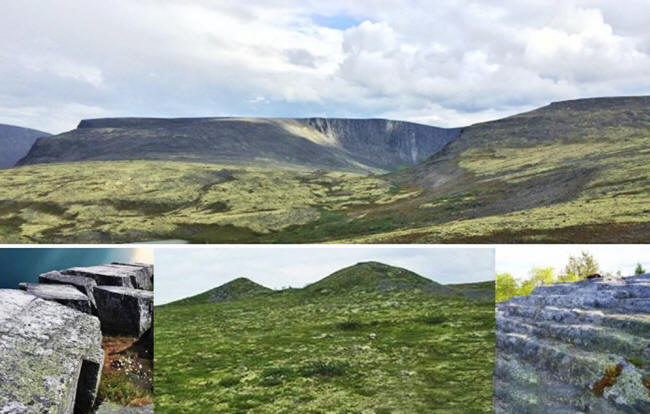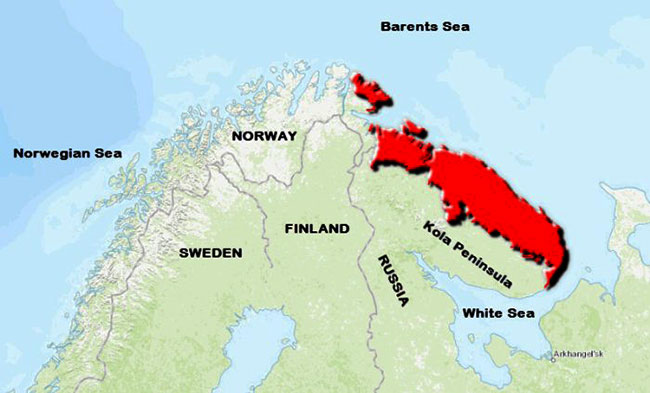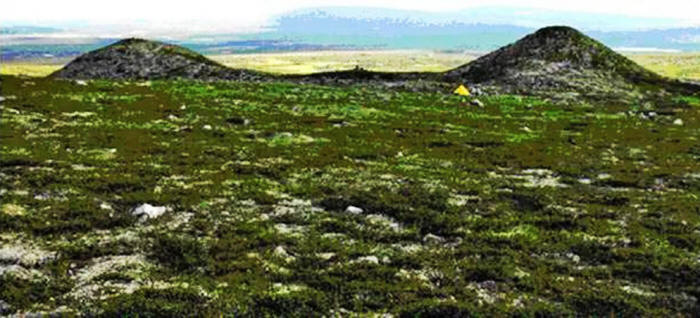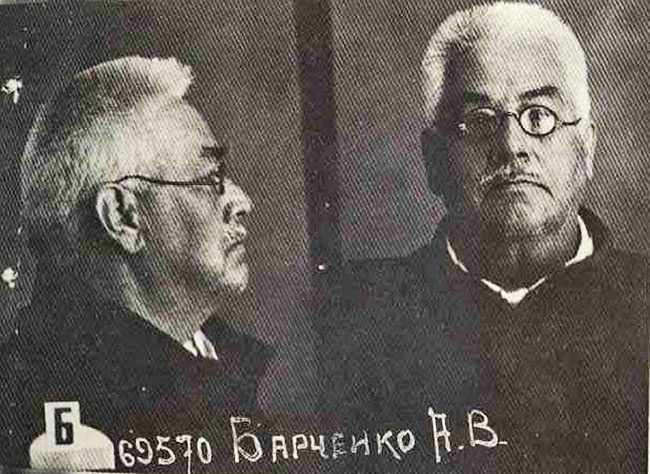|

by Ellen Lloyd
August 03,
2020
from
AncientPages Website
Spanish version
Italian version

Ancient Egyptian pyramids are magnificent and worthy of
admiration.
Egypt can be proud of all
its beautiful ancient monuments, tombs, statues, and countless other
artifacts that add glory to the country's enigmatic and fascinating
ancient history.
The same can be said about the pyramids that were raised in
Mesoamerica, Mesopotamia, and
all other places where we encounter
ancient pyramidal structures.
It's well-known that almost every ancient culture left a legacy that
was marked by towering pyramids.
Still, whenever you mention pyramids, most people think about Egypt,
and it's not surprising because they are the most famed ones.
But did you know
there are many similar structures that pre-date the Egyptian
civilization...?
Not all of them are as
famous, but they are equally interesting and deserve further
scientific investigation.
Were the Kola
Pyramids Built by the Hyperboreans?
In the
Kola Peninsula, archaeologists have
examined fascinating pyramids that have the potential to rewrite
ancient history.
The pyramids are
estimated to be approximately 9,000-year-old and pre-date the
Egyptian ones.
The first know study of
the Kola pyramids took place in the early 1920s when Russian
researcher Alexander Vasilyevich Barchenko (1881-1938)
traveled with a scientific team to investigate the mysterious,
unknown ancient structures.
Barchenko was not a
mainstream scientist and his theories are controversial but very
interesting.
Barchenko became convinced the Kola pyramids were constructed by the
lost civilization of
Hyperborea, a mythical island
according to ancient Greeks.
Hecataeus of Miletus (550
BC-476 BC), the first known Greek historian came to believe the holy
place of the Hyperboreans lay,
"on an island in the
ocean… beyond the land of the Celts."
According to
Diodorus Siculus (90 BC-30 BC),
who was also a Greek historian,
God Apollo regularly
visited the mysterious land of Hyperborea on his swan drawn
chariot.

Credit: Public Domain
Diodorus wrote,
"Opposite to the
coast of Celtic Gaul there is an island in the ocean, not
smaller than Sicily, lying to the North - which is inhabited by
the Hyperboreans, who are so named because they dwell beyond the
North Wind.
This island is of a
happy temperature, rich in soil and fruitful in everything,
yielding its produce twice in the year. Tradition says that
Latona was born there, and for that reason, the inhabitants
venerate Apollo more than any other God.
They are, in a
manner, his priests, for they daily celebrate him with continual
songs of praise and pay him abundant honors.

Photo from
Barchenko's expedition
to the
Kola Peninsula.
Credit:
Zizu Hotel Russia
In this island, there is a magnificent grove of Apollo, and a
remarkable temple, of a round form, adorned with many
consecrated gifts.
There is also a city,
sacred to the same God, most of the inhabitants of which are
harpers, who continually play upon their harps in the temple,
and sing hymns to the God, extolling his actions.
The Hyperboreans use
a peculiar dialect, and have a remarkable attachment to the
Greeks, especially to the Athenians and the Delians…"
"It is also said that in this island the moon appears very near
to the earth, that certain eminences of a terrestrial form are
plainly seen in it, that Apollo visits the island once in a
course of nineteen years, in which period the stars complete
their revolutions, and that for this reason, the Greeks
distinguish the cycle of nineteen years by the name of 'the
great year'…"
Hyperborea has never been
found but it doesn't necessarily mean the place never existed.
Submerged ancient ruins
of Hyperborea may still be discovered.
Could the abandoned
Kola Pyramids of the Russian North have been a legacy of a lost,
advanced ancient civilization we know virtually nothing about?

Kola pyramids.
Credit: Good Hotels Russia
Barchenko's theory was that humans emerged from the northern regions
during the Golden Age, about 12 thousand years ago.
A great flood forced
Aryan tribes living there to leave the area to move originated in
the North in the era of the so-called
Golden Age, that is, about
10-12 thousand years ago.
The Flood caused the Aryan tribes
living there to leave the Kola Peninsula and move south.

Alexander Vasilyevich Barchenko in 1937
one year before he was executed.
Credit: Public Domain
After having studied
Masonic literature, the late
Russian scientist became convinced the Hyperboreans were a very
advanced civilization that mastered atomic energy, levitation and
flight.
He also believed that
Sami shamans who lived on the Kola
Peninsula were the carriers of the ancient knowledge of Hyperborea.
Bashenko was a vivid student of religious and mystical subjects, and
though his theories have never been confirmed they are of great
interest to anyone interested in students of alternative ancient
history.
Bashenko was executed in Moscow during the
Great Purge on April 25, 1938.
Unknown Voids
and Chambers Inside Kola Pyramids
In 2007, a Russian expedition team made an attempt to study the
pyramids.
Among these scientists
were,
-
the press
secretary of the Pulkovo Observatory, candidate of physical
and mathematical sciences Sergey Smirnov
-
Professor of the
Russian Academy of Natural Sciences Valery Chudinov
-
Professor, doctor
of geological and geographical sciences Dmitry Subetto
It was a more difficult
and dangerous journey than the researchers had expected.
The Kola pyramids are
located in a remote region and the locals,
the Lapps, were reluctant to show
the way.
According to one of the team members, Russian scientists observed
the pyramids from a helicopter, but not all structures were visible
from the air due to dense vegetation.
Their helicopter almost crashed, but they did eventually manage to
reach the ancient site and study these enigmatic structures.
According to the Russian
geologists, the Kola pyramids are two buildings about 50 meters
high, connected by a bridge and oriented to the cardinal points.
"During the
expedition, we took a special instrument, the most modern
geophysical equipment - the Oko
georadar," one of the
researchers said.
The tool "shines through"
the inner space of any object, like an x-ray.
The conclusion of the
geologists was unequivocal:
-
the elevations
are anthropogenic in nature
-
therefore, these
are not natural hills, but man-made pyramids -
the work of human hands.
There are voids and
unknown chambers inside the pyramids.
The function and purpose of the Russian pyramids remain unknown.
Perhaps they were used as an astronomical observatory in ancient
times.
What is known is that
they are much older than
the Egyptian pyramids and their existence offers yet
a new exciting chapter we can add to our history books.
It's fair to say that mystery of the Kola pyramid remains unsolved
to this day...
|






